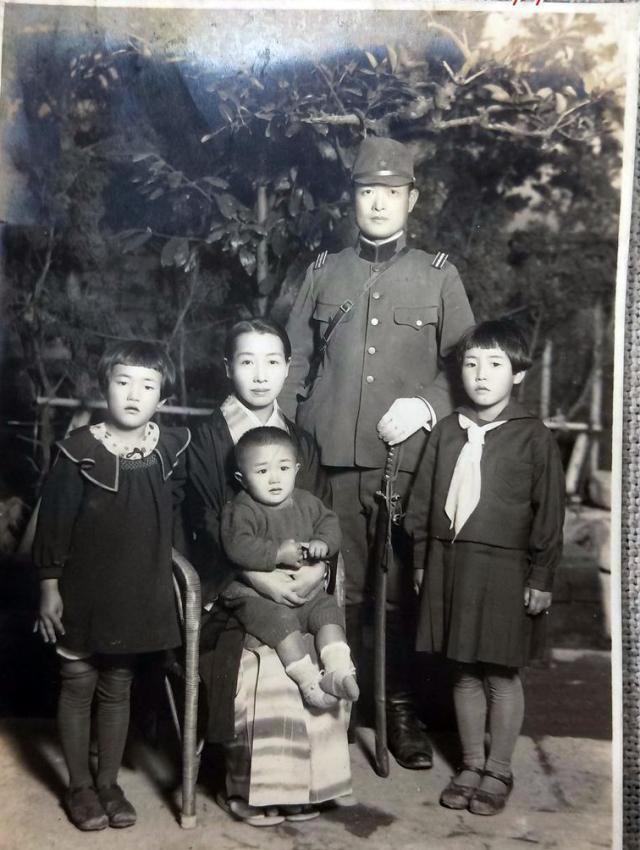In 1932, konoe's cabinet supported the puppet emperor Puyi and established a puppet state of Manchukuo in the three eastern provinces. Emperor Hirohito meant that although Manchuria was already in the bag, for the sake of safety, it should also immigrate 1 million to 5 million to Manchuria in the next 5 years. Only Manchuria, which is flooded with a large number of Japanese, is a stable Manchuria. Therefore, according to Liu Guoqiang's book "Orphans of Japan", at the behest of Emperor Hirohito, a large number of Japanese people were organized to form the so-called "Northeast Pioneer Regiment". By the time of Japan's surrender in 1945, there were 981 pioneer regiments in the northeast, with 320,000 regiments.

According to historical records, one of the 320,000 people named Fukuchi Masazo came to Beixuetian in Nehe County, Heilongjiang Province in 1943. The two were teachers in Japan, so they still teach when they arrived in Nehe Prefecture. Unexpectedly, by 1945, due to insufficient troops, a large number of non-military personnel were conscripted into the army. Masazo Fukuji was not spared. More than 20 days later, Emperor Hirohito announced his unconditional surrender, and there was no news of Masazo Fukuchi. In desperation, his wife had to leave Nehe County with Fukuji Zhengbo, who had just turned 5, and with the refugees, went to Qiqihar to find the Kwantung Army. Because there, the Kwantung Army had prepared a train for them and promised to transport the members of the pioneer group back to Japan safely.
But the road was not smooth, and Masahiro Fukuji's mother fell ill with the plague and died in the middle of the road. His son, Masahiro Fukuchi, was only 5 years old, and he was also hungry and cold, with a high fever that did not go away, and even had difficulty breathing. Seeing that this mother and son were about to die on the road, a Chinese peasant woman named An Shuqing passed by, and seeing this scene, the mother's nature made her unbearable to watch the child die on the side of the road, so she took her home. According to historical records, the husband and wife had no children under their knees, and now that they had adopted a little boy, they were very happy, and her husband Wang Yushan also gave the child a Chinese name, called Wang Jiude.
Maternal love is the greatest selfless feeling in the world, as it is said in the Book of Verses, "Mourn your parents, and give birth to me." In order to save her son, Masahiro Fukuchi's mother knelt down on her knees and begged the Chinese woman in front of her, hoping that she could take her son out of this magic cave. It just so happened that this woman had been suffering from the lack of children in the family, and after some thought, she left with Fukuji Masahiro, and Fukuchi Masahiro's mother remained forever in the place where she was attacked by evil diseases.
For this adopted Japanese orphan, the peasant woman's family showed great tolerance and kindness, not only did not hate him because of his Japanese blood, but regarded him as his own and patiently cared for him to grow up. Later, they also paid for his medical treatment, changed his name to Wang Jiude, and sent him to school for education. Although the disease was cured, Masahiro Fukuji fell to the root of the disease and his body has been very weak. Later, when I was still exercising, I got bone tuberculosis because of bone injuries. At that time, there was almost no possibility of curing the disease, and in order to treat him, his adoptive parents came out early and returned late every day, selling cold powder and cigarettes on the street to raise him, and even spent money to buy expensive milk to supplement his body.
The efforts of the adoptive parents to themselves are all looked at by The Blessed Land. Infinitely grateful, Masahiro Fukuji is determined to reciprocate his studies, so he has studied very hard since he was a child, and has achieved many achievements that his parents are proud of. Although he knew his origins when he was in elementary school, he never suffered discrimination in his studies and life because of his Japanese identity, which made him more deeply grateful to China.
After graduation, he successfully stayed in school because of his excellent grades, and later soared all the way to the position of party secretary. Every month he would send money to his home, but his adoptive parents always quietly saved up the money and gave it back to him on the day of Fukuji Masahiro's marriage. In 1989, Masahiro Fukuchi's adoptive mother died, and before she died, she told the experience of the past half century and the true identity of Masahiro Fukuji, and then Masahiro Fukuchi followed his mother's last wishes and began to search for his father, who had been separated from him for half a century.